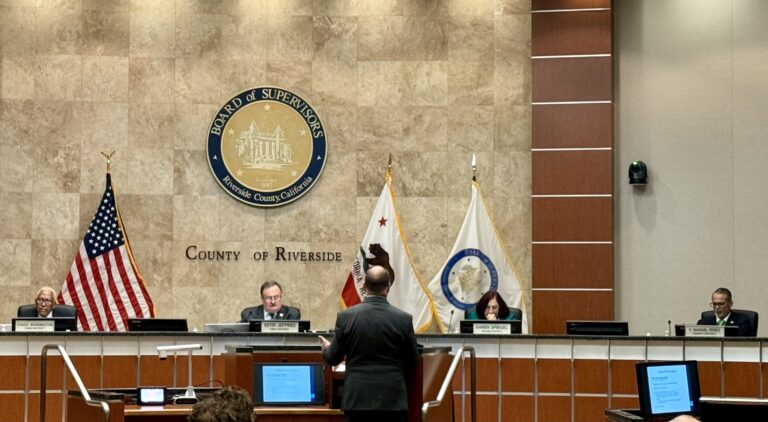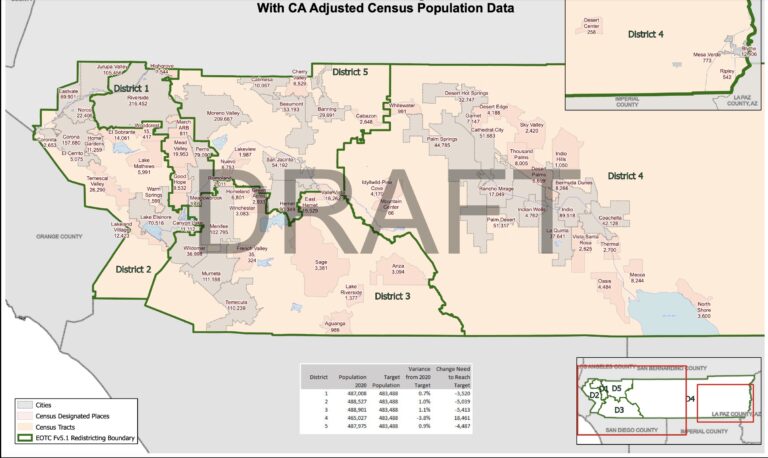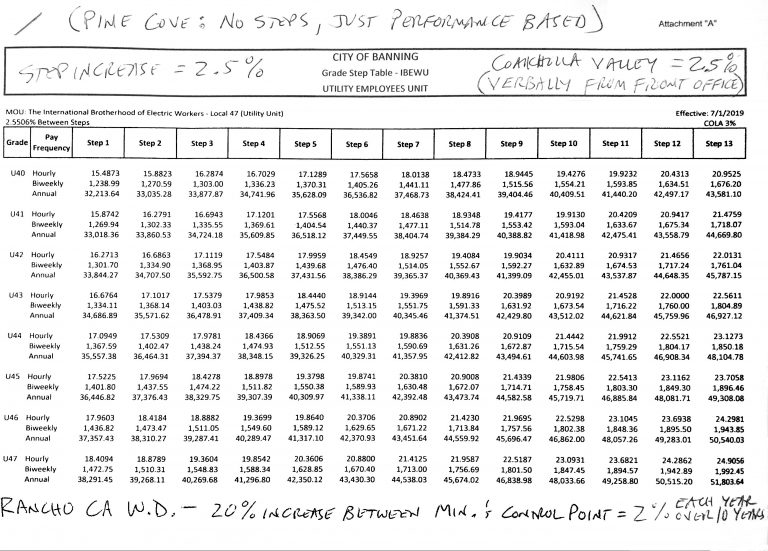The last session of the California Legislature ended in September and Gov. Gavin Newsom signed hundreds of bills the Legislature had passed into law.
Many new laws went into effect Jan. 1, 2024, and some are effective later in 2024, such as in April, June or July. Most of these were enacted and signed in 2023. However, a few were signed in previous years, but the effective date was 2024.
Below is a summary of the more prominent new laws effective in 2024. Many affect workers, such as wages and leave, several are for renters’ protection and we now have an official a state mushroom and bat.
Wages
Jan. 1, 2024, California’s minimum wage increased from $15.50 per hour to $16 for workers in most industries. This will benefit both part-time and full-time workers. Localities with a higher minimum wage will pay that amount.
However, fast food and health care workers will see even higher pay checks beginning in April 2024.
Assembly Bill 1228, which Assemblyman Chris Holden (Dist 41- D) authored, raises the minimum wage for fast food workers to $20 per hour April 1. This bill was a compromise to avoid a statewide referendum on a 2022 law (AB 257) that created a 10-person council to set rules for chains with 100 or more restaurants nationally. The council could hold corporate fast-food chains responsible for working conditions at restaurants that individual franchisees own. The industry obtained sufficient signatures to place a referendum on the November 2024 ballot.
In September, both groups agreed to AB 1228. The industry withdrew the referendum and the new hourly wage of $20 was set to be effective April 1, 2024.
However, in recent news, Pizza Hut franchisees in several local counties, including Riverside, have announced layoffs of more than 1,200 drivers due to this pay increase.
Health care workers also were singled out from the statewide minimum wage laws. Senate Bill 525, which Sen. María Elena Durazo (Dist 26 -D) wrote, raises the pay for various health care workers beginning June 1, 2024. There will be a rising scale of hourly wages for health care workers. Starting June 1, health care workers must be paid at least $18 per hour, with minimum wages being set slightly higher in some circumstances, such as for employees in more populous counties. Annual increases occur for differing numbers of years.
Starting June 1, large health systems and dialysis clinics with 10,000 or more full-time employees will have to pay workers a minimum of $23 an hour. Hospitals that get most of their funding from Medi-Cal and Medicare, and small rural hospitals, will have to pay workers at least $18 an hour. Primary care clinics, community clinics and urgent care clinics and other health care facilities will pay employees at least $21 an hour.
Increases in each of the following two years are also specified in SB 525.
Paid leave
Besides wages, workers will have greater access to paid leave. SB 616 authorizes another two days of paid sick days per year. The bill increases the number of paid sick leave days for eligible employees from three to five days per year.
It also increases the cap on an employee’s accrual of paid sick leave from 48 hours to 80 hours or 10 days. Sick leave also will provide for caring for a sick family member.
“When our working families can take the time they need to take care of their health and their loved ones’ health, everyone benefits,” said Sen. Lena Gonzalez (District 33-D), author of the bill, in the news release prior to its Senate hearing. “Many businesses and cities in California are already providing more paid sick leave than is required by the law because they know when their workers are healthy, we can overcome great challenges together for our communities and our economy, so let’s raise the bar on paid sick leave by passing SB 616”.
SB 616 also authorizes paid time off for employees who are victims of domestic violence, sexual assaults or stalking.
Five days of paid time off for an employee who suffers a reproductive loss such as a miscarriage is authorized in SB 848, which Sen. Susan Rubio (District 22-D) submitted. A failed adoption, failed surrogacy or unsuccessful round of intrauterine insemination also are defined as a reproductive loss. The law does not require employers to provide paid leave, but an employee may use vacation, personal leave, accrued and available sick leave, or compensatory time off that is otherwise available to them.
Food handler card costs shift
As of Jan. 1, the cost to obtain a state approved food handler card is the responsibility of the employer. In the past, the employee had to pay the costs to qualify for the card in order to work in business that require food safety training.
SB 476, authored by Sen. Monique Limón (District 19-D), shifts these costs for the legally required card to the employers. Previously, employees paid for their own training and certification expenses.
Typically, any food service employee who handles food will benefit. California has long required food handlers in restaurants to obtain certification — and until now, training and testing has been the employee’s responsibility.
The California Health and Safety Code currently requires relevant workers to obtain a food handler card within 30 days of their hire date and to maintain a valid card for the duration of their employment as a food handler. This requirement remains unchanged. Generally, food handler cards are valid for three years — a standard that will continue.
While employees are obtaining their card, employers also must now relieve employees from all other work duties and compensate them for this time, the cost of the testing, and any other cost associated with completing the training courses and examination.
Off-duty cannabis use
Besides pay and leave, another 2022 law, AB 2188, went into effect Jan. 1, 2024, and offers protection for workers who may use cannabis on their own time.
This law, from Assemblywoman Sharon Quirk-Silva (District 67-D), prohibits employers from penalizing workers for legal recreational cannabis use while on their own time. Employers may not fire employees for cannabis use in their personal lives. Workers can still be penalized for coming to work high or using it during work.
Another new law, SB 700, bars employers from inquiring about an applicant’s past cannabis usage. Sen. Steven Bradford (District 35-D), the bill’s author, said the measure “promotes equity by ensuring that individuals are not discriminated against solely for their legal and recreational use of cannabis,” according to a legislative analysis.
Employees should still understand and comply with rules regarding workplace safety and impairment. And cannabis use and intoxication at work may still be prohibited.
Besides workers, tenants are the beneficiaries of several new laws.
Renters’ security deposits
While AB 12 was passed Sept. 12, 2023, it doesn’t go into effect until July 1, 2024. It limits security deposits for renters to one month’s rent, whether the unit is furnished or unfurnished.
Landlords with one or two rental properties, totaling no more than four rental units, are exempt from the law. A small landlord may demand or receive a deposit in an amount or value not in excess of two months’ rent, whether or not the unit is furnished, in addition to any rent for the first month.
This small landlord exception does not apply if the prospective tenant is a service member. Landlords who currently hold a security deposit or demand or collect a security deposit in excess of one month’s rent prior to July 1, 2024, may continue to retain the security even if it is more than one month’s rent.
“Massive security deposits can create insurmountable barriers to housing affordability and accessibility for millions of Californians” said Assemblymember Matt Haney’s (District 17-D), who chairs the California Legislature’s Renters’ Caucus. “Despite skyrocketing rents, laws on ensuring affordable security deposits haven’t changed substantially since the 1970s. The result is that landlords lose out on good tenants and tenants stay in homes that are too crowded, unsafe, or far from work or school.”
Tenant eviction protections
SB 567, also authored by Durazo, limits landlords’ ability to evict tenants based a valid no-fault cause under state policies. A just cause for eviction could include the following circumstances: nonpayment, lease violations, nuisances or compliant move-ins.
Existing law defines no-fault just cause to mean intent to occupy the residential real property by the owner or a family member. It also allows for withdrawal of the residential property from the rental market. This might occur when the owner complies with specified government orders to vacate the property. Another cause would be the owner’s intent to demolish or to substantially remodel the residential real property.
If an eviction for these causes were to occur after July 1, the owner or family member must occupy the property for at least 12 months.
If an owner displaces a tenant to substantially remodel or demolish a unit, they must provide the tenant with information describing the substantial remodel, such as when it is to be completed and demolished, and a copy of permits required to undertake the substantial remodel or demolition, as specified.
If this information is not provided or is the cause of the eviction, the owner might be liable to the tenant in a civil action for damages of up to three times the actual damages, in addition to punitive damages. The bill would authorize the attorney general and the city attorney or county counsel, within whose jurisdiction the rental unit is located, to bring actions for injunctive relief against the owner, as specified.
Hotel and Airbnb refunds
SB 644 makes it easier to cancel your accidental bookings on hotel sites, third-party booking companies and short-term rentals such as Airbnb. If you make a reservation and need to cancel it, you are now guaranteed your full refund if the cancellation occurs within 24 hours of your booking and at least 72 hours before the reservation begins.
“This first-in-the-nation law will end the confusing maze of misleading cancellation policies for lodging on the Internet,” said Sen. Steven Glazer (District 7-D), author of SB 644. “Now, consumers will have a chance to correct mistakes and cancel bookings they hadn’t intended to make and get a full refund.”
Junk fees
SB 478 takes effect July 1, 2024, and prohibits “hidden fees” from being added to the advertised cost of hotel reservations, sports tickets, car rentals and more.
This legislation makes it an unlawful business practice to advertise, display, or offer a price for a good or service that does not include all mandatory fees or charges, which a customer is required to pay as part of the transaction. These additional or “hidden” fees are often called “junk” fees.
Optional fees and charges, such as for premium movie channels in one’s cable TV subscription, or for gift-wrapping an online purchase, would not have to be included.
In effect, it requires retailers to provide the true, and whole, price of a service, product, or ticket whenever they advertise or display a price.
Hotel “destination” fees or broadband network “termination” fees are examples of other hidden costs. In the future, the public price of the ticket must also include these service charges, thus showing the full price of purchase to the customer.
The exceptions are generally special cases such as taxes or fees imposed by a government on the transaction or the cost of postage that will be incurred to ship a physical good to the consumer. Another broader exception includes fees and charges assessed by governments of airlines, automobile dealers, broadband internet providers, car rental companies and other institutions.
State Sen. Nancy Skinner (District 9-D), who co-authored the bill, said in a statement. “… Californians will know up front how much they’re being asked to pay.”
Traffic stops
Another 2022 law, AB 2773. will eliminate the frightening question, “Do you know why I pulled you over?” when California peace officer stops a driver. Now the peace officer will have to tell the driver or pedestrian the reason for the stop before asking investigatory questions. Officers are required to inform individuals of the reason for their stop before any questioning related to a criminal investigation or traffic violation.
The officer also must document the reason for the stop on any citation or police report resulting from the stop.
However, one condition exempts the new procedure. If the officer reasonably believes that withholding the reason for the stop is necessary to protect life or property from imminent threat, such as kidnapping or terrorism, they will not have to state the reason first.
Crosswalk protections
AB 413 is intended to add protection to pedestrians, cyclists and overall driver safety.
Designed to increase visibility at crosswalks, this law prohibits parking or stopping a vehicle along a curb at least 20 feet from a marked crosswalk or 15 feet of a crosswalk where a curb extension is present — a safety measure known as “daylighting.”
The regulation only applies to the side of the road of the vehicle’s approach to the crosswalk. Local jurisdictions may establish different distances through local ordinances by marking areas with signs or paint.
Intersections are especially dangerous, and annually, about a quarter of traffic fatalities and half of all traffic injuries in the U.S. occur around intersections, according to Assemblymember Alex Lee (District 24-D), who authored the bill.
“The signing of the legislation represents a simple, but important step forward to improving California’s road safety. California’s pedestrian fatality rate is nearly 25% higher than the national average. By increasing critical visibility of our streets, this bill will help prevent fatal accidents,” Lee said in his news release.
Fentanyl
AB 701 will impose harsher punishments for people convicted of trafficking large amounts of fentanyl. This law classifies fentanyl on the same list of controlled substances that include heroin, cocaine and other drugs, which carry stiffer penalties and sentencing enhancements for dealers. As of Jan. 1, 2024, an individual convicted of dealing a kilo or more of fentanyl will face much stricter sentencing. People convicted of dealing or attempting to deal more than a kilogram of fentanyl will face years of additional prison time. The law aims at prosecuting drug traffickers and high-scale dealers to the same degree as heroin and cocaine drug dealers.
“Sentence enhancements have been a useful tool for law enforcement to target and prosecute traffickers of dangerous substances,” said Assemblymember Carlos Villapudua (District 13-D) in his news release following the bill’s signing. “Extending this enhancement law to fentanyl traffickers was simply common sense. We could not continue with a lenient approach while the poison kills 6,000 Californians annually. We could not continue wishing this problem away — we had to take action.”
Ban on new gas-powered small off-road engines
AB 1346 bans the sale of new gas-powered small off-road engines by 2024 or when deemed feasible, focusing on engines with a horsepower rating of 25 or less. This includes lawn equipment, leaf blowers, generators, emergency response equipment and other categories.
The bill’s purpose is to help reduce air pollution. Although small, these engines emit high levels of particulate exhaust.
“Leaf blowers, lawn mowers, and other equipment with small gas-powered engines emit staggering levels of air pollution,” said Assemblymember Marc Berman (District 23-D). “These noisy machines are terribly disruptive to communities across California, and the workers who breathe in exhaust from this equipment day in and day out face disproportionate health risks, including asthma, cardiovascular disease, and cancer.”
The law bans the sale of new non-zero-emission small off-road engines, but does not prohibit using existing equipment.
And now the state has an official mushroom and bat, to go with its golden poppy as the official state flower and the California redwood as the official state tree and the California grizzly bear as the state animal.
New official state designations
Assemblymember Ash Kalra (District 25-D) authored AB 261, which establishes the California Golden Chanterelle (Cantharellus californicus) as the official state mushroom. The California Golden Chanterelle is a commonly collected edible mushroom found beneath California oak trees. The fan-shaped, orangey fungi are found below oak trees and are particularly common after rainy weather.

California State Capitol Museum
And SB 732 designates the California pallid bat (Antrozous pallidus) as the state bat. Pallid bats live in California’s deserts, oak woodlands, coastal redwood forests and high up into the pine forests of the Sierra Nevada mountains.

California State Capitol Museum
The law states that “bats eat many pest species including those that contribute to health risks such as mosquitoes, wasps, and flies,” Sen. Caroline Menjivar (District 20-D) wrote in her news release after the bill was signed. A female bat nursing her young will eat more than two-thirds of her body weight in insects and arthropods every night.
“Consequently, bats provide more than $1 billion worth of pest control to California agriculture. Other beneficiaries include homeowners because bats eat bark beetles and wood borers, reducing wildfire risk in California forests,” Menjivar added.









